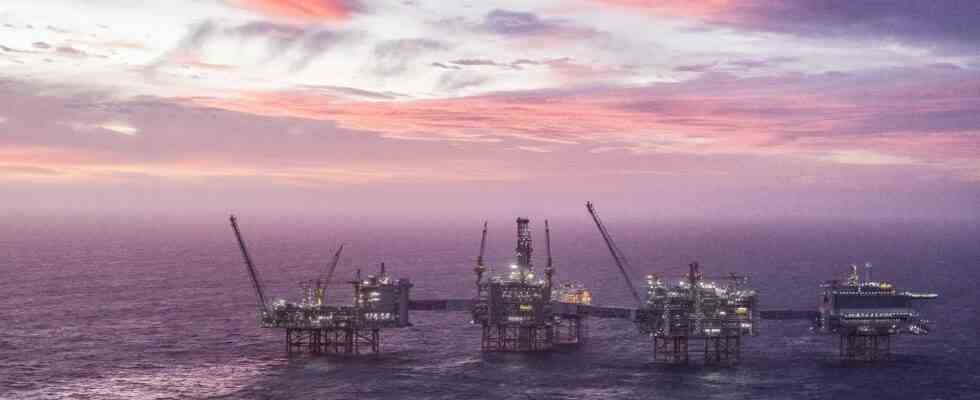Status: 07.01.2023 3:59 p.m
The leaks in the Nord Stream 1 pipeline have shown how vulnerable the energy supply via the North Sea is. Norway’s navy has therefore increased its patrols. But she also knows that she can’t be everywhere.
All of Europe trusts this man. Admiral Rune Andersen, commander of the Norwegian Navy, inspects one of his frigates on the west coast of Norway. From here, the Norwegian territorial waters are monitored, but above all what lies deep down on the seabed: oil and gas pipelines that supply many countries in Europe.
What happens underwater, he says, is “not 100 percent” controllable. “But the information that the energy producers are providing us with, combined with our military reconnaissance, gives us a pretty good overview of the network.”
Norway’s army has to protect almost 9,000 kilometers of pipelines and cables. Added to this are the oil and gas installations in the open sea and on land.
How Norway protects its energy supply
Gunnar Köhne, Europe Magazine, January 7, 2023
Norway is also vulnerable
Soldiers are on duty around the clock. The fear of acts of sabotage is great, especially since the blasting of the Nord Stream gas pipelines in the Baltic Sea last September. Norway is also vulnerable.
That is why Prime Minister Jonas Gahr Støre announced at the end of October that the Norwegian armed forces were more prepared to defend themselves. Norway must “expect threats everywhere in the country, at sea, from the air and through the Internet”. Therefore, the readiness for defense must be increased.
Misjudged Russia?
Ståle Ulriksen is skeptical. The security expert complains that his compatriots were naïve for a long time. He has been warning for many years that the Russian neighbor has Norway in his sights:
Take the high proportion of Russian nationals working for Norwegian shipping companies, even in coastal shipping. At the same time, it was clear to everyone that behind this was a targeted infiltration by the Russian government.
Multiple arrests
In mid-October, an alleged Brazilian researcher was arrested in the northern Norwegian city of Tromso. The research group Bellingcat wants to have identified him as a colonel of the Russian military intelligence service GRU.
In addition, since the outbreak of the war, the Norwegian police have arrested nine Russian tourists in various places, including the son of an oligarch on a sailing tour. They are said to have photographed sensitive places in restricted areas with their drones.
In Norway’s coastal town of Bergen, people on the street tend to react calmly to such news. Some people are constantly shouting “espionage,” says an older gentleman. He’s rather skeptical about that, but has nothing against the army being more prepared.
And another pedestrian says that Russia wants to spread fear with such actions; the Norwegians shouldn’t be impressed by that.
“Now more important than ever”
Above all, Norway’s navy does not want to be surprised. Commander Andersen gets a report from his subordinate Coast Guard. Patrols have been stepped up along the 2,500-kilometer coastline.
The Navy is now “very flexible,” says Coast Guard Commander Oliver Berdal. After all, you can’t be everywhere at once. So she decides “if necessary, from hour to hour, every time where we are and when”.
General Andersen noted that the mood was “greatly serious.” But it is also a good feeling to see that the job for which they were trained and prepared “is more important than ever today”.
Norway is Europe’s largest gas supplier. That brings the country a lot of money. But also a lot of responsibility. Admiral Andersen and his team want to ensure that the gas gets to where it is needed, even in these uncertain times.
You can see this and other reports in Europamagazin – on Sunday at 12.45 p.m. in the first.

